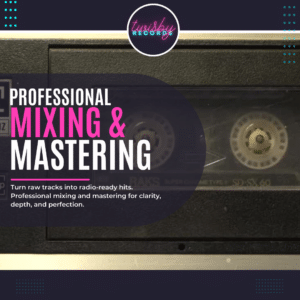If you’re new to music production, you may have heard the terms “multitracks” and “stems” thrown around, but aren’t sure what they mean or how they differ. In this article, we’ll break down the differences between multitracks and stems and explore when to use each one.
Multitracks and stems are both ways of exporting individual tracks from a music production project, but they differ in how they’re organized and what they contain. Multitracks include all of the individual tracks from a project, while stems are a group of tracks that have been mixed together.
What Are Multitracks?
Multitracks are individual tracks that have been recorded or programmed separately in a music production project. For example, a multitrack session for a song might include separate tracks for vocals, guitar, bass, kick, snare, and keyboards. When exported as multitracks, each of these individual tracks is included in a separate audio file.
What Are Stems?
Stems are groups of tracks that have been mixed together. For example, a stem might include a group of tracks that make up the drums (snare, kick, toms, etc), or all of the guitars or all of the keys. When exported as stems, each group of tracks is included in a separate audio file.
When Should You Use Multitracks vs Stems?
Multitracks are best used when you need the most flexibility and control over your music production. This is particularly important if you’re working with a mixing engineer, who will want to work with multitracks to ensure the highest level of quality and control.
Stems are best used when you want to quickly and easily make changes to your mix without spending a lot of time adjusting individual tracks. This is particularly useful for live performances or remixes, where you may need to make changes on the fly, and very helpful in the world of Film and TV where music supervisors may want alternative mixes, like no vocals, no lead, drums and vocals, etc.
Overall, understanding the differences between multitracks and stems is important for any music producer or engineer. It’s important to consider the pros and cons of each format and determine which one is best suited for your specific needs and workflow.
In some cases, you may need to export both multitracks and stems to ensure maximum flexibility and compatibility. This is particularly important if you plan on collaborating with other producers or engineers who may have different preferences or workflows.
What Are the Pros and Cons of Using Multitracks?
Pros:
- Multitracks give you the most flexibility when it comes to mixing and editing your music. Because each individual track is included in a separate file, you can adjust the levels, EQ, and effects on each track independently.
- Multitracks are the most common format for professional music productions, so if you’re working with a mixing or mastering engineer, they’ll likely want to work with multitrack.
Cons:
- Multitracks take up more storage space than stems, since each track is exported as a separate file.
- Working with multitracks can be more time-consuming than working with stems, since you’ll need to adjust the levels and effects on each track individually.
- People will often SAY they want Multitracks, but they really wanted the Stems! Or they Will say they wanted the stems, but they really wanted the Multitracks.
What Are the Pros and Cons of Using Stems?
Pros:
- Stems are a good option if you want to quickly and easily make changes to your mix. Because each group of tracks is already mixed together, you can adjust the levels and effects on the entire group of tracks at once.
- Stems take up less storage space than multitracks, since each group of tracks is exported as a single file.
Cons:
- Stems give you less flexibility than multitracks when it comes to mixing and editing your music. Because the tracks are already mixed together, you can’t adjust the levels, EQ, and effects on each track independently.
- Stems may not be the preferred format for professional music productions, since they limit the flexibility of the mixing and mastering engineer.
- People will often SAY they want Multitracks, but they really wanted the Stems! Or they Will say they wanted the stems, but they really wanted the Multitracks.
















